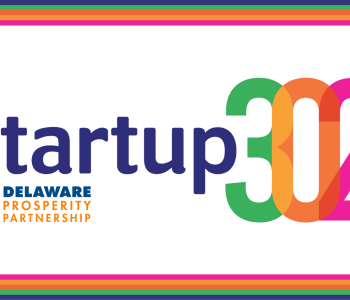Delaware Prosperity Partnership

June 30, 2025
STAR Fund Reimburses STEM Student Loans

June 25, 2025
Delaware Invests in Region’s Innovations

June 9, 2025
How the STAR Fund Helps STEM in Delaware

May 29, 2025
New Workforce Development Support in DE

May 20, 2025
Delaware Retains Triple-A Bond Rating

April 29, 2025
QPS Chooses to Expand at Newark’s DTP

April 28, 2025
SSBCI Offering $14M in Small Biz Funds

April 8, 2025
Nine Finalists Selected for Startup302

April 1, 2025
PBJ: Bracebridge Sale a Best 2024 Deal

March 27, 2025
$71.5M Gift Boosting UD Business College

March 27, 2025
View DPP’s 2024 Annual Report

March 27, 2025
Innovative Tax Policies for Businesses in Delaware























